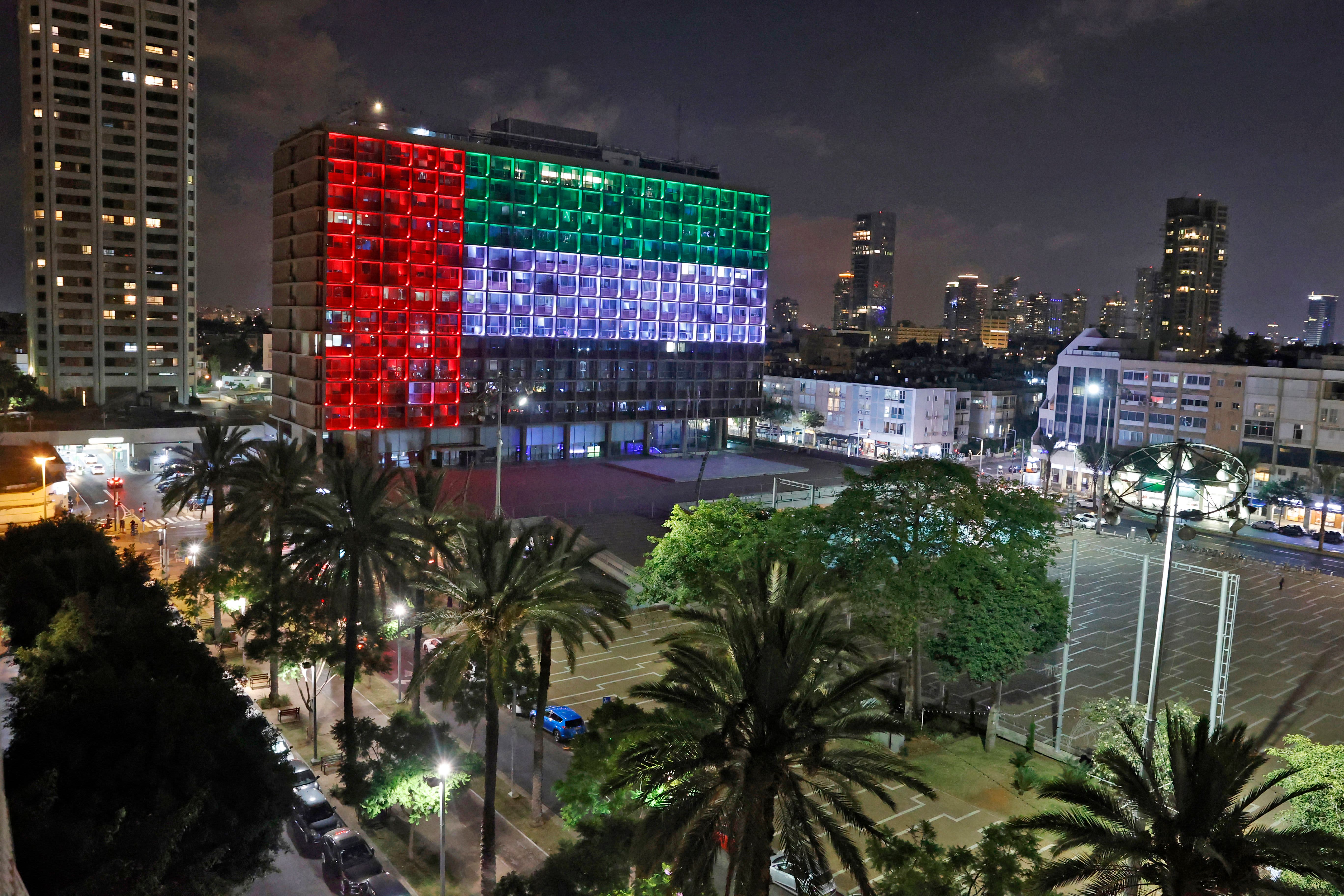The UAE's peace deal with Israel is a 'win-win solution,' says UAE minister

The city hall in the Israeli coastal city of Tel Aviv is lit up in the colours of the United Arab Emirates national flag on August 13, 2020.
Jack Guez | AFP | Getty Images
The United Arab Emirates' peace deal with Israel is a "win-win solution" that takes away the "looming threat" of annexation in the West Bank, according to the Gulf country's minister of state for foreign affairs.
"We were in Arab League meetings ... and the whole idea was, what do we do to stop this annexation? Somehow, annexation seemed as a looming threat that will undermine any prospects of a two-state solution," Anwar Gargash told CNBC's Dan Murphy on Thursday.
His comments were made shortly after U.S. President Donald Trump announced yesterday that both countries agreed to normalize relations, making the UAE the first Persian Gulf state and the third Arab nation to have open diplomatic ties with Israel.
It's a good day for Israel and for the UAE, they both get something out of this that they very much want.
Thomas Warrick
Atlantic Council
"The UAE was quite active diplomatically and we took an unprecedented step of our ambassador ... saying basically that annexation will just wreck the whole prospect of negotiations and peace, and will affect Israel's prospects of establishing relations with the Arab world," Gargash said.
"I can't really pinpoint a certain moment, but the idea developed that why don't we actually create a win-win solution," he added.
Thomas Warrick, non-resident senior fellow at the Atlantic Council, agreed with the sentiment.
"It's a good day for Israel and for the UAE, they both get something out of this that they very much want," he said. "The UAE shows its value as a strategic partner to both U.S. political parties. Israel gets out of their being stuck over the settlements issue ... This gives them a valuable prize, normalization of relations with the UAE."
Gargash described the deal as a way of "defusing a real threat" to a two-state solution and "hopefully" allowing negotiations to restart, but not a "roadmap for peace" between Israel and Palestine.
"This is really up to the Palestinians, up to the Israelis, up to other traditional brokers such as the Americans," he said.
Criticism of the agreement
A spokesman for Palestinian President Mahmoud Abbas said the leadership "rejects and denounces" the treaty, while Turkey released a statement that said history "will not forget and never forgive this hypocritical behavior of the UAE," according to a Reuters report.
Iran, a common adversary of Israel and the UAE, also condemned the deal. State news agency IRNA reported that the country's foreign ministry on Friday termed the decision as a "strategic act of idiocy" and said it was a "dangerous" move.
Ahead of that statement, Gargash said he wouldn't be surprised by pronouncements from Iran, given that the Islamic Republic still does not accept Israel as a state.
"The Arabs, I think have gone beyond that, the Palestinians have gone beyond that," he said. "The Iranian position on this issue is static."
He added that there will never be a "perfect moment" for the UAE to normalize relations with Israel. "If we really wait for that perfect moment, it really is a call for ... standing still and letting developments sort of bypass you, and unfortunately, this has been the case with the Palestinian issue historically."
Asked if the agreement would hold in the event of a Biden presidency in the U.S., Gargash said this "strategic change" will not be overturned.
"It will not be reversed for Israel, it will not be reversed for the UAE, and it will not be reversed for the United States. I think that come what may, I think all political systems will deal with this as a positive development."
— CNBC's Natasha Turak and Tucker Higgins contributed to this report.
Source
Check Our More
No comments